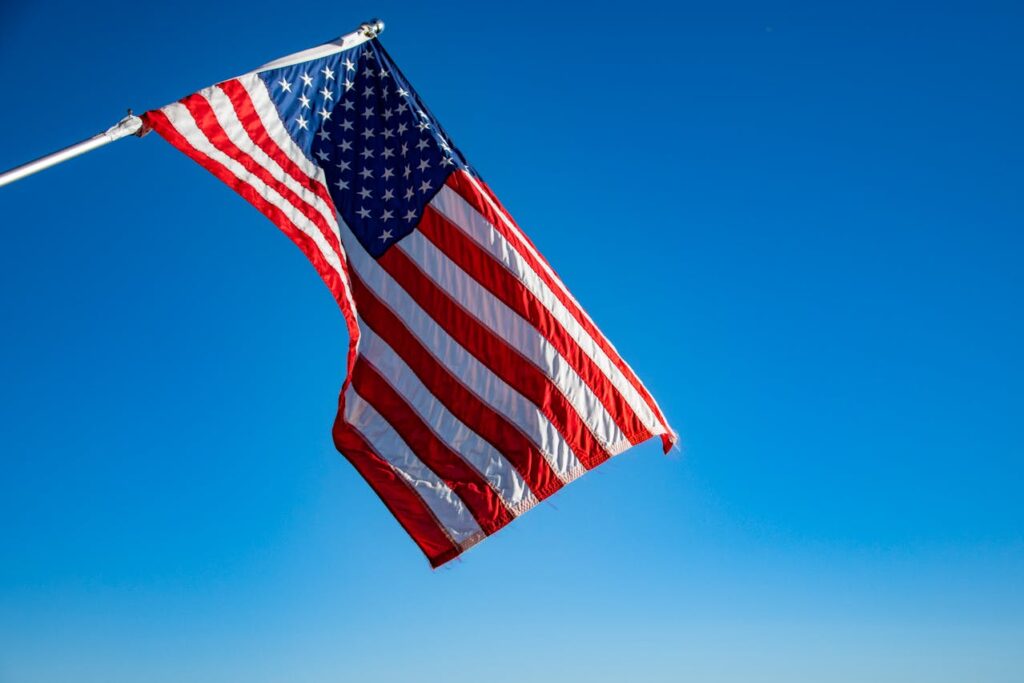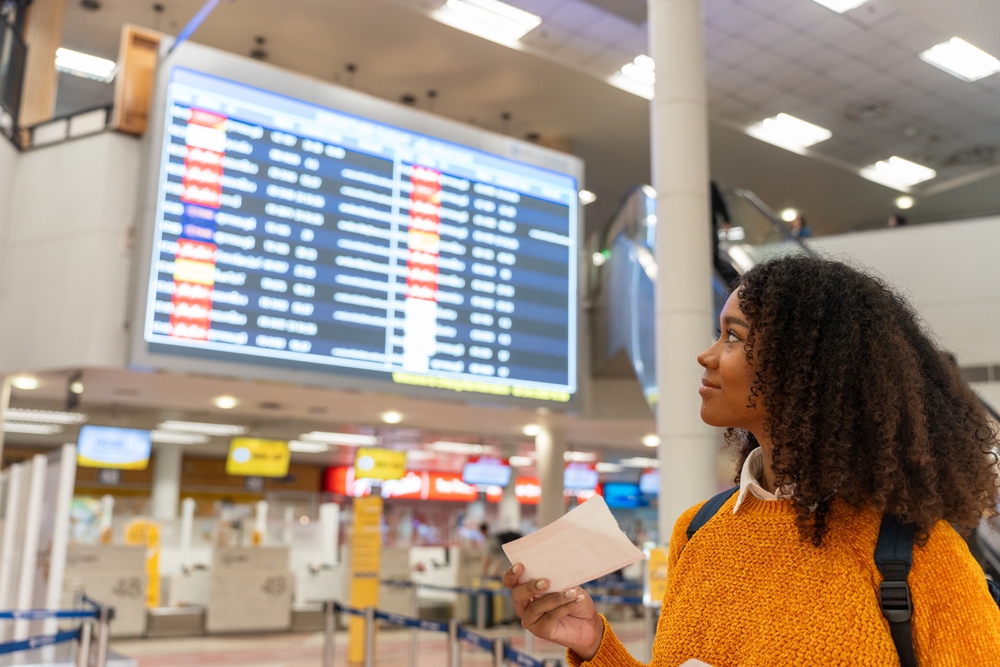For many Americans, the idea of traveling abroad brings excitement, curiosity, and a long bucket list. But for about one in three, that enthusiasm fades quickly due to one persistent concern. Language barriers are the top reason why many Americans hesitate to go overseas. Even the most adventurous travelers often feel anxious when they imagine being unable to communicate clearly. From ordering food at a restaurant to asking for help in an emergency, not speaking the local language creates a sense of vulnerability that is hard to shake.
This fear is not just about misunderstandings. It is about feeling isolated and powerless in unfamiliar environments. For those who have never left the country, the idea of navigating signs, menus, and conversations in a different language can feel overwhelming. The result is that many opt to stay in English-speaking countries or avoid international travel altogether.
Fear of Getting Lost in an Unfamiliar System
Another layer of this fear involves transportation. Public transit systems in foreign countries often operate differently than those in the United States. Train routes, bus schedules, ticketing machines, and even local taxis can create stress for travelers unfamiliar with the setup. Without a common language, asking for directions or understanding signage becomes a frustrating and intimidating experience. Many Americans worry about getting lost or ending up in the wrong place, especially in large cities or rural areas with few English speakers. The concern of not being able to return to their hotel or missing their next connection keeps many from venturing too far from familiar paths. Rather than risk confusion and discomfort, they cancel or avoid international trips altogether.
Medical Emergencies in a Foreign Language

The fear of medical issues is another major concern linked to language barriers. Travelers worry about getting sick or injured in a country where they cannot explain their symptoms or understand medical advice. Not knowing how to read prescriptions or communicate with doctors creates anxiety. Many Americans are uncomfortable with the idea of receiving treatment in unfamiliar clinics or hospitals without clear communication. Some fear being misdiagnosed or not being able to advocate for themselves if they cannot speak the language. For older adults or those with medical conditions, this fear becomes even more significant. It is not just the event itself that is frightening, but the uncertainty of how to handle it in a foreign system.
The Perceived Danger of Cultural Missteps
Many Americans also fear offending locals due to cultural misunderstandings. Saying the wrong thing, misinterpreting gestures, or violating unspoken rules can lead to uncomfortable encounters. These fears are magnified when language barriers prevent travelers from asking questions or clarifying their intentions. Even small slip-ups, like not knowing how to greet someone or being unsure how to behave in a place of worship, create anxiety. The idea of being judged or criticized for cultural insensitivity keeps many people from taking the risk. Rather than risk embarrassment or conflict, they decide it is safer to stay where customs and communication are familiar.
Technology Has Not Fully Solved the Problem
While translation apps and smartphone tools have made international travel easier, they have not removed the fear entirely. Many Americans are hesitant to rely on technology in high-stress situations. Some worry about losing signal, running out of battery, or not understanding automated translations. Others are not confident in using apps effectively or do not trust the accuracy of the results. Even with tools like Google Translate, speech-to-text converters, or phrasebooks, people still fear they will not be able to handle nuanced or urgent conversations. In the end, the technology feels more like a safety net than a solution. For those with strong language fears, digital support is not enough to push them out of their comfort zones.
The Role of Past Negative Experiences
For some Americans, previous travel mishaps make their fear of language barriers worse. A single bad experience, like getting lost, being scammed, or feeling helpless abroad, can leave a lasting impression. People tend to remember moments when they felt embarrassed or misunderstood, especially if they involved public scenes or stressful consequences. These memories reinforce the belief that language challenges are too risky to face again. This fear builds over time and creates avoidance behaviors. Even when new opportunities arise, the emotional baggage from past experiences often outweighs the desire to try again.
Anxiety About Losing Control

Control is a major factor behind the fear of traveling abroad. When people cannot communicate, they feel they are losing control of their surroundings. Simple tasks, like checking into a hotel or ordering a meal, become obstacles. The uncertainty of each interaction can be mentally exhausting. This lack of predictability creates anxiety that builds up before the trip even begins. Instead of embracing the unknown, many Americans retreat to safer travel options. Domestic vacations offer comfort, routine, and ease of interaction. Without the language barrier, people feel more in charge of their plans, more secure in their choices, and more relaxed overall.
Media Portrayal of Foreign Travel Risks
Popular media often exaggerates the dangers of traveling abroad, especially in places where English is not widely spoken. News reports, TV shows, and online videos sometimes focus on horror stories of tourists getting scammed, lost, or stuck without help. These stories feed into existing fears and give the impression that foreign travel is full of hazards. Americans who are already uncertain about their communication skills are more likely to absorb these messages. Over time, this contributes to a general reluctance to go beyond borders, especially into regions that seem complicated or unfamiliar. Even if these fears are not based on personal experience, they still influence decision-making.
Travel Planning Becomes Overwhelming
Planning an international trip can be complex, even without language fears. But when people anticipate communication problems, the stress multiplies. Booking transportation, navigating airport procedures, researching customs, and preparing for emergencies all seem more difficult when a language barrier is involved. Some travelers feel they need to be experts before they even arrive. The fear of being unprepared stops many from booking a ticket in the first place. They become overwhelmed by what-ifs and worst-case scenarios. This mental fatigue creates a loop of hesitation and indecision, which ultimately leads to cancellation or avoidance.
Social Pressure and Travel Expectations
In some cases, Americans fear being judged by others for not speaking the local language. The pressure to blend in, act cultured, or impress travel companions adds extra tension. People worry they will hold others back or appear ignorant. This fear is especially common in group trips or when traveling with more experienced friends. Rather than risk embarrassment, they may decline the trip altogether. They also fear being seen as unadventurous or closed-minded if they express their language concerns. This creates an emotional conflict that is hard to resolve without support or understanding from others.
The Comfort of Staying Within the U.S.

In the end, many Americans simply choose to travel within their own country. The United States offers a wide range of destinations, climates, and experiences without the added stress of language barriers. From national parks to vibrant cities, travelers can explore freely without worrying about communication. This convenience often outweighs the appeal of international adventures. It is not a lack of curiosity that stops people, but a desire for comfort and confidence. Until the fear of language barriers is addressed, many Americans will continue to explore the world from within their own borders.
Solutions That Encourage Global Travel
Despite the challenges, there are ways to reduce fear and build confidence. Guided tours, bilingual apps, local interpreters, and phrase learning tools all offer practical support. Travelers can also start with countries where English is commonly spoken or where tourism is well-developed. Choosing destinations with multilingual signs, English-speaking staff, or large expat communities helps ease the transition. Over time, small steps lead to bigger journeys. The key is not to eliminate fear completely, but to manage it with preparation, tools, and support. Traveling abroad can be deeply rewarding, and no one should miss out due to fear alone.
Read More: 14 U.S. Cities Travelers Regret Visiting in Recent Years
Disclaimer: This article was created with AI assistance and edited by a human for accuracy and clarity.

